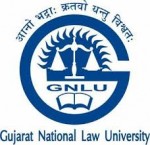- The subject of ‘Law & Economics’ or ‘Economic Analysis of Law’ is concerned with this intersection between the subjects of Law & Economics. It permits the greater use of economic tools and concepts to examine and understand the law in addition to recognising the importance of law to the analysis of the economy.
- Today, the field of Law & Economics has expanded and transformed subjects such as property, contracts, torts, criminal law and procedure, constitutional law, administrative law, environmental law, family law, etc. The inherent advantage of this field is that its objective nature permits the legal system to function rationally and more efficiently.
- Besides, it provides a useful normative standard for evaluating law and policy. Law & Economics is a cutting-edge, interdisciplinary field that applies tools from microeconomic theory to legal rules and structures so as to explain their functioning, evaluate their performance and prescribe alternative rules and structures so as to create optimum social outcomes.
- Law & Economics has seen prolific development in various jurisdictions and has elicited startling results that have changed the way we look at and run our legal systems, winning scholars a number of accolades, notably including the Nobel Prize in Economics.
- This calls for a general theme of law and economics for the Essay Competition. With further restrictions around the world due to COVID-19, economic policies have evolved impacting major sectors.
Relevant Themes and Sub-Themes
The Centre encourages the submission of manuscripts for essays focusing on the economic analysis of law. Manuscripts may be in any of the substantive areas of Law and Economics, including but not limited to the following:
- Basic Areas of Law and Economics: Property, Contract, Tort Law and Product Liability, Forensic Economics, Criminal Law, Civil Law, Common Law, Constitutional and Election Law.
- Economic Analysis of Litigations: Causes of delays/pendency in judicial administration, costs of delays, out-of-court settlement, judicial reforms, legal procedures, the legal system and illegal behaviour, enforcement of the law.
- International Law (public and private): International Trade, Law and Development, Environmental Law, Human Rights Law.
- Regulation and Business Law: Antitrust, Business and Securities, Regulated Industries, Business and Cyber, Real Estate.
- Economics of Legal Procedure: The Legal System Litigation Process, Illegal Behavior and Law Enforcement.
- Macroeconomics and Law: Use of economic tools in public policy analysis.
- Law and Finance: Financial sector reforms in India, Formation of monetary policy, Cyber Crimes, Stock Market Regulations, Sovereign Bonds, Corporate and Banking Bankruptcy, Bankruptcy Code, Tax Evasion, Black Money, Basel and Financial Stability Board norms, WTO and the Financial Services.
- Market Regulators: IRDA, TRAI, SEBI, PFRDA, Antitrust, Regulated Industries/Competition law and working of the Commission, Consumer laws, Financial Sector Legal Reforms Commission.
- Other Substantive Areas of Law and Economics: Labor, Energy, Environmental, Health, Safety, International, Tax, Family and Personal, Immigration.
- Economical Analysis of Contemporary Legal Developments: for instance, anti-defection law, etc.
Note: The above themes are only indicative.
Eligibility
- Students pursuing Five-Year/Three-Year LLB Discipline
- Students pursuing One-Year/Two-Year LLM Discipline
- Students/Research Scholars pursuing M.A./M.Phil/Ph.D Discipline in Economics
- Research Scholars pursuing PhD in the interdisciplinary study of Law and Economics
- Students/Research Scholars pursuing M.A./M.Phil/Ph.D Discipline in Statistics
- Students/Research Scholars pursuing M.A./M.Phil/Ph.D Discipline in Public Policy
- Students/Research Scholars pursuing M.A./M.Phil/Ph.D Discipline in Development Studies
Note: This is not an exhaustive list. Students, Researchers, Academicians, and Professionals having an avid interest in the interdisciplinary study of Law and Economics are welcome to contribute to the Essay Competition too. However, we strongly promote Young Researchers, Scholars and Academicians to contribute to this Essay Competition and be associated with GNLU Centre for Law and Economics. Academicians teaching and researching in the interdisciplinary study of law and economics. Professionals working in Banking, Finance or Economics field.
Submission Rules
- Soft copies of manuscripts and abstracts are to be uploaded through this link.
- Submissions are to be made in the form of MS Word (2003 or 2007 or 2010 or 2013).
All submissions are to be made via a google form. (Note: write your name and co-author’s name as the file name.) - Manuscript word limit: 5000-7000 (excluding footnotes and references)
- Submission date: on or before September 20, 2022.
- Font: Times New Roman. Font size: 12. Line spacing: 1.5. All text should be justified, with a
margin spacing of 1” on all sides. - Headings and Sub-headings must be appropriately numbered.
- Each manuscript must contain:
- Cover page – Full title of the paper (times new roman, bold, font size: 16), Name(s) of the contributor(s) and designation (kindly note: the contributors’ names should not be mentioned on any other page), and E-mail and contact number.
- Detailed index with sub-heading
- Abstract (150-250). Add minimum 3 keywords.
- Introduction of a minimum of 150-350 words.
- Main body (4500-6500 words),
- Findings
- Relevance in world/ suggested policy implication/ limitations of the study
- Conclusion (200-500 words)
- Recommendation ( 100-200 words)
- References (at the end of the paper, arranged alphabetically)
- Footnoting style to be followed: The Bluebook: A Uniform System of Citation (2015, 20th ed.)
- Contributors are requested to strictly follow the citation style for both footnotes and references.
- Your paper should be error-free: grammar, spelling, punctuation etc. – your paper must be
original and plagiarism free.
Rewards
- 1st Prize to Best Essay: INR 10,000 Cash Prize + Publication in GNLU Journal of Law and Economics (After Incorporating Reviewer Comments).
- 2nd Prize to Second Best Essay: INR 5,000 Cash Prize.
- 3rd Prize to Third Best Essay: INR 3,000 Cash Prize.
Submission Deadline
September 20, 2022
For further clarity one may reach out to cle@gnlu.ac.in
 387
387

